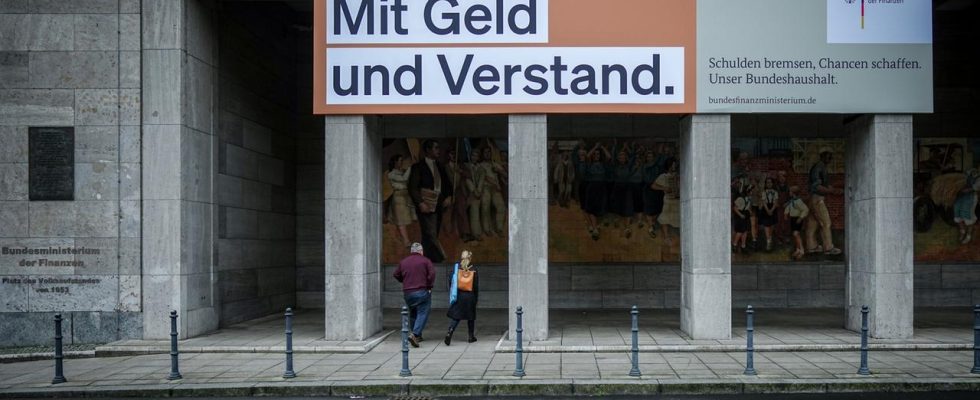The discussion about the debt brake continues: Transport Minister Wissing speaks of a “sham debate”, Bavaria’s Prime Minister Söder sees a “serious state crisis”. Chancellor Scholz emphasized again that the budget would be reorganized quickly.
Federal Transport Minister Volker Wissing has called the debate about reforming the debt brake a “sham debate”. “This is an abstract debate, but we have a concrete problem.” There is “obviously no majority to change the constitution” for reform, he continued.
Wissing also criticized those “who complained that the federal government did not have a Plan B in its pocket.” “With such dimensions, you don’t have a fully developed plan B,” says Wissing. “That would involve an unrealistic amount of effort. That’s just not how you do something like that.” Plan A was considered legally secure and that alone was a “Herculean task”.
Scholz: “Get to work”
Chancellor Olaf Scholz once again announced that he would quickly reorganize the budget after the Karlsruhe budget ruling. That won’t be easy. “But instead of discussing the results of the consultation in advance, I would say we would rather get to work,” said Scholz in his speech at the Brandenburg SPD party conference in Schönefeld.
The federal government’s important goals remained: “We will continue to support Ukraine. We will do everything we can to cushion the economic consequences of the war,” said Scholz. “We will do everything we can to maintain cohesion in the country. And that also applies to the major industrial modernization project in Germany.”
Söder sees “severe state crisis”
Bavaria’s Prime Minister Markus Söder said that Germany was in a “serious state crisis” that was of its own making. He and his Bavarian Finance Minister Albert Füracker advised the federal government very early on to suspend the debt brake for this year because of the burdens caused by the Ukraine war. Federal Finance Minister Christian Lindner rejected the proposal “arrogantly and arrogantly”.
Söder spoke out vehemently against lifting the debt brake. A stable budget policy has made Germany great. Solidity must remain the basis of politics in Germany and Europe.
The demand for a reform of the debt brake had previously come primarily from the ranks of the SPD and the Greens. The Jusos want to abolish the debt brake completely. Within the traffic light, the FDP has so far categorically rejected any reform. The picture in the Union is inconsistent. Like Söder, CDU leader Friedrich Merz is against easing the restrictions. But different sounds are coming from CDU-governed federal states in the east.
Kretschmer and Wüst ready to talk
Saxony’s Prime Minister Michael Kretschmer appeared ready to talk. The CDU heads of government in Berlin and Saxony-Anhalt, Kai Wegner and Reiner Haseloff, even spoke clearly in favor of reform. “We simply have to ensure that strategically important investments will continue to be possible in times of crisis,” said Haseloff. Wegner put it this way: “The debt brake is a good idea in terms of sound finances. However, I think its current design is dangerous.”
North Rhine-Westphalia’s Prime Minister Hendrik Wüst (CDU) was reserved but willing to talk. In his opinion, discussing the topic should only be the last resort, he said in the ARD.
Suspend the debt brake for the fourth year in a row
The Bundestag is scheduled to discuss the supplementary budget for the current year for the first time on Friday next week. This is necessary because the Federal Constitutional Court declared the transfer of unused Corona loans to the Climate and Transformation Fund (KTF) to be inadmissible. Other special funds such as the Economic Stabilization Fund (WSF), from which the energy price caps are paid, must now be placed on a different legal basis. That’s why Finance Minister Lindner announced that the debt brake would be suspended for the fourth year in a row.
In order to temporarily suspend the debt brake, the traffic light does not rely on votes from the Union – unlike changes to the debt brake. It can decide this with its majority in the Bundestag. According to the Basic Law, this is permissible “in the event of natural disasters or exceptional emergency situations that are beyond the state’s control.” The Bundestag saw such an emergency for the years 2020 to 2022 – twice the focus was on the corona pandemic, and last year the war in Ukraine was the focus.

